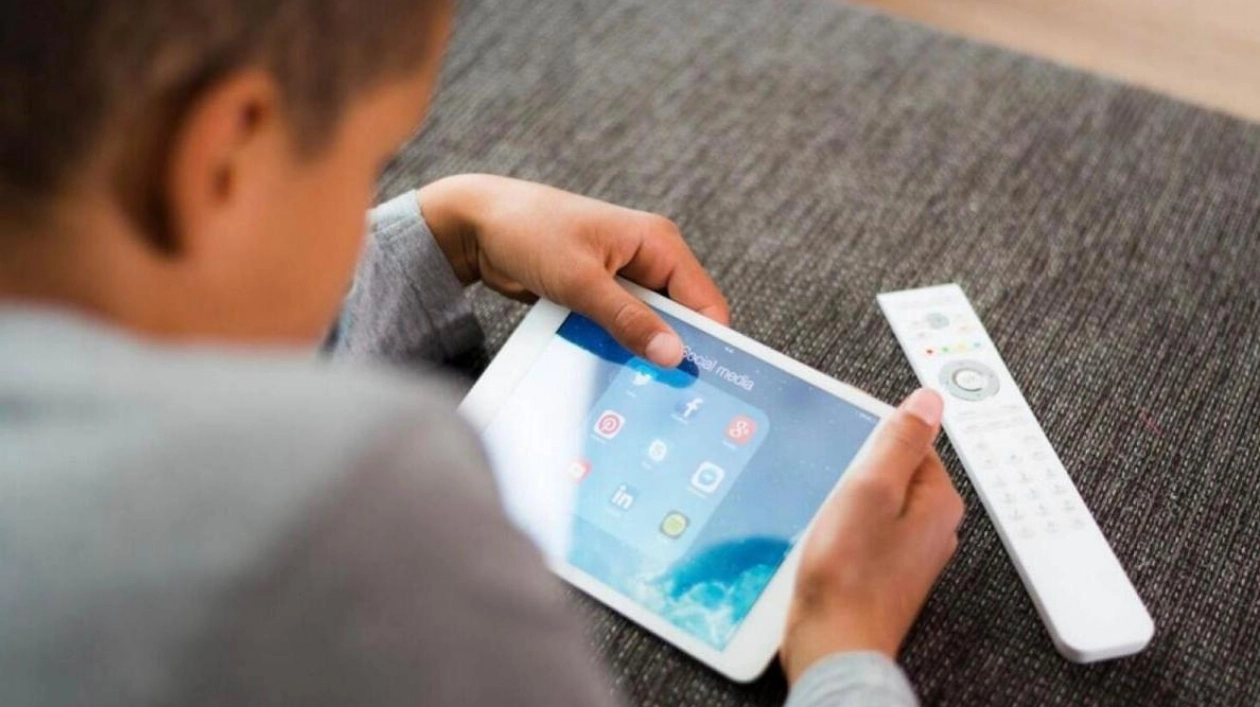During the summer break, numerous children spend most of their time indoors, frequently interacting with electronic devices. Medical professionals report that this significant rise in screen exposure is leading to a spike in vision and other health issues among youngsters.
A Khaleej Times analysis reveals that during the school term, children's screen time is typically controlled by their academic and extracurricular commitments. However, the holiday period poses challenges for parents trying to curb their kids' digital device usage.
Akhlaq Salem, a fifth-grader at a private school in Sharjah, started having chronic headaches and sleep difficulties as his vacation began. With his parents working in Dubai, Akhlaq stays home with his older siblings. "There's not much for them to do at home. His brother is studying for competitive exams, and his sister is busy with household chores. Akhlaq either watches TV or cartoons on his tablet," explained Ameera, Akhlaq's mother.
"He spends about 7 to 8 hours daily on his tablet, resulting in sleep disturbances and constant headaches. Initially, we didn't know the cause, but after discussing his routine with the doctor, we realized his excessive screen time was a factor," Ameera noted, emphasizing the need to reduce screen time to restore his normal routine.
Similarly, Ali, a 12-year-old Iraqi resident, experienced persistent headaches and difficulty seeing the smart board at school. After consulting doctors at Thumbay University Hospital, it was discovered that his prolonged video gaming sessions contributed to his symptoms. Tests showed signs of digital eye strain and a refractive error, leading to a diagnosis of myopia and the prescription of glasses, along with advice for taking structured breaks during screen use and engaging in more outdoor activities.
Doctors highlight that summer holidays often lead to specific vision issues in children due to increased outdoor activities and extended screen time. Dr. Gayathri Mohan, a specialist at Thumbay University Hospital's center for ophthalmology, warns that excessive screen time is a complex issue affecting multiple aspects of a child's development and well-being.
"Beyond harming ocular health, such as causing digital eye strain and myopia, prolonged screen exposure is linked to significant cognitive, social, linguistic, and mental health challenges," she explained. Excessive screen time diminishes face-to-face interactions crucial for developing communication skills, empathy, and interpersonal relationships, and can also impact linguistic skills by reducing verbal communication and language development opportunities.
Mental health is another concern, with studies showing a link between excessive screen time and increased risks of anxiety, depression, and attention disorders in children, according to Dr. Mohan. Academically, prolonged screen exposure is associated with poorer performance, possibly due to less time spent on educational activities, disrupted sleep patterns from blue light exposure, and shortened attention spans.
Common symptoms of digital eye strain in children include eye discomfort and fatigue, blurred vision, dry or itchy eyes, headaches, neck and shoulder pain, increased light sensitivity, and difficulty focusing, as noted by Dr. Ahmed Mamdouh Elashtokhy, an ophthalmology specialist at Burjeel Day Surgery Centre.
To manage children's screen time and reduce digital eye strain, doctors suggest setting daily limits on non-educational screen use. They recommend following the 20-20-20 rule: every 20 minutes, take a 20-second break to view something 20 feet away. Creating a comfortable environment with appropriate lighting and ergonomically set up workspaces is also advised. Encouraging outdoor activities and using blue light filters on devices, along with ensuring children wear sunglasses with UV protection outdoors, are additional recommendations.
To alleviate the effects of prolonged screen use, doctors suggest blinking exercises to keep eyes moist and practicing palming by placing warm hands over closed eyes. Shifting focus from near to distant objects during eye exercises can reduce fatigue, gentle eye rolling relaxes eye muscles, and maintaining proper posture with the screen at eye level minimizes neck and shoulder strain.






